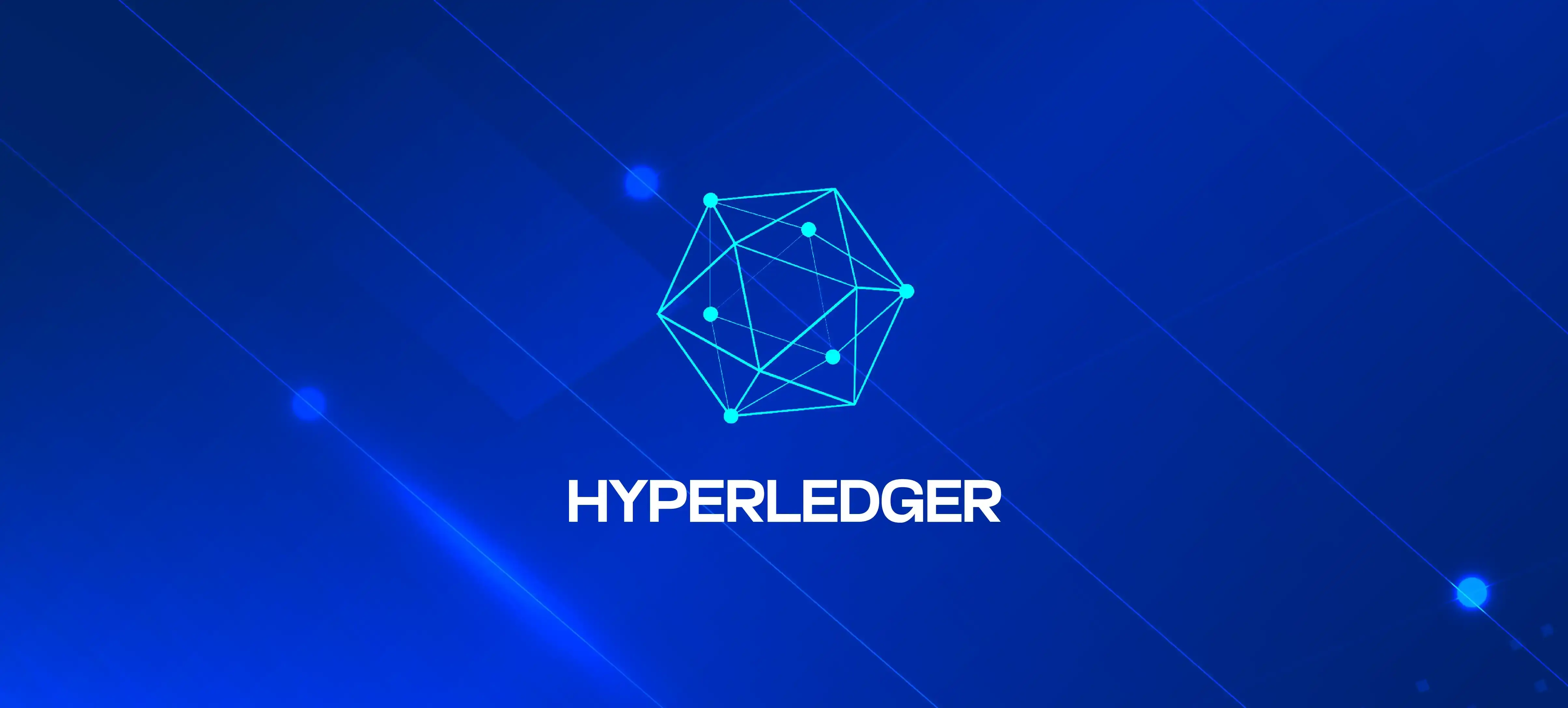
How to Create and Deploy a Secure Smart Contract for Your Business
Table of Contents
While blockchain has opened up new possibilities for businesses, smart contracts extend their use cases to various industries including supply chain management, healthcare, Internet of Things (IoT), finance and payments, and more.
Other than creating and deploying, the security of smart contracts is equally important. Malicious agents in the blockchain can exploit the network and steal customer data. This article gives a brief understanding of the smart contracts development process, security risks, and practices to avoid data breaches.
What are Smart Contracts?
Smart contracts are self-executing and automated programs encoded into the blockchain development services network. They automatically perform the operations in the ecosystem based on the set of terms and conditions. Smart contracts are crucial elements that offer authenticity and allow businesses to trade. Today, their use cases have expanded to a wide range of industries.
Smart contracts eliminate the need for central authorities, third parties, or intermediaries, resulting in the seamless execution of functions and user requests while reducing processing fees. Implementation of smart contracts includes a number of steps including coding, security, testing, and deployment.
Steps to Develop Smart Contracts
Below are 5 simple steps to create and develop your own smart contracts.
1. Define the Concept
The very first step is to define what your blockchain smart contract audit will do. You might have a problem or use a case in mind that a smart contract will execute. Once you are clear about the functionality, expectations, and outcome of your smart contract, it will become easy for you to code it.
2. Coding
This is a crucial and a little complex step. In this step, you will choose the programming language you will use to create a smart contract. It depends on the blockchain network on which you will deploy your smart contract. For instance, if you are using the Ethereum blockchain network, then Solidity programming language will be used for coding.
To begin, you’ll need an integrated development environment (IDE) to write a contract. Remix is one example of IDE, an open-source application that supports web and desktop applications as well as useful plugins to code smart contracts.
3. Testing
Rigorous testing of smart contracts is very important to catch bugs on time and eliminate vulnerabilities beforehand. Before deploying smart contracts, functional testing is performed to find errors if any. For this, various testing tools are available that can be used to simplify testing procedures. Remix, Hedera, and Truffle are some tools and frameworks used to test smart contracts.
4. Compiling
Before deployment, smart contracts are converted into JSON files. This process is called compilation. After coding and testing, Ethereum smart contracts, for example, are compiled into the bytecode of the Ethereum Virtual Machine (EVM) to make them highly compatible with EVM networks.
5. Deploying
The last step in blockchain smart contract development is deployment in which you specify some details such as rewards and wallets. Choose the network and make a transaction using real crypto. Once completed, a smart contract will be launched and executed when all the conditions encoded into smart contracts are met. Smart contracts are first deployed on testnet to avoid mistakes and errors. Lastly, they are deployed on the mainnet. Due diligence is performed to ensure they are running smoothly without bugs and storage as well as maintenance issues are addressed.
Smart Contracts Security Risks
Apps and digital solutions are prone to cyberattacks. Similarly, when it comes to blockchain security, smart contracts play a vital role in implementing safe and secure programming interfaces such that security breaches can be mitigated. Below are some popular smart contracts' security risks.
Reentrancy Attack
It is a recursive process in which funds are transferred between vulnerable and malicious smart contracts. It usually takes place when a hacker calls the next function before the end of the previous one.
Denial of Service
DoS attacks in smart contracts restrict users from using the service for a specific period. In the blockchain, DoS attacks are of three types: unexpected revert, block gas limit, and block stuffing.
Insecure Arithmetic
It is another security risk for smart contracts in which integer variable encounters overflow or underflow. This results in vulnerabilities that help attackers in developing unparalleled logic flows.
Oracle Manipulation
It takes place when an oracle smart contract is manipulated by hackers. It is the most common attack in the DeFi space that leads to system failure and damage.
Timestamp Dependence
Timestamp dependence security risk is when a smart contract performs the logical operation by utilizing the block timestamp function.
Frontrunning
In frontrunning, attackers make malicious use of transaction processing for blockchain technology. Bad actors add high processing transaction fees and when the token price of large transactions reduces, the malicious actors sell the tokens they bought.
Best Practices to Develop Secure Smart Contracts
Considering the potential security risks associated with smart contracts, there are some security guidelines and practices that users, developers, and exchanges can apply to develop or use smart contracts. For developers, smart contracts security entails code examination, mitigating Solidity programming mistakes, and dApp’s security.
There are some blockchain and language-specific practices to create secure smart contracts. Some of them are mentioned below.
-
Make use of secure libraries and for that make sure it is from a trusted source and also check the security of the code library
-
Implement smart contract solutions built on standard techniques and functions that are proven and tested
-
While coding, implement exception-handling functions to prevent any unforeseen bugs in the smart contract that can cause any kind of damage
-
Make use of the Solidity compiler that has debugging capabilities. A good compiler eliminates the risk of potential errors in run time and makes smart contracts efficient and secure
-
Use static analyzers and additional security tools
-
Perform regular smart contract auditing for which instead of relying on one security audit company, hire another reputable company to mitigate risks
-
Deploy and test smart contracts on testnet to catch bugs before uploading them to the mainnet
-
Perform rigorous functional testing before deploying smart contracts
How do Smart Contracts Benefit Your Business?
Smart contract integration brings a number of benefits to your business. It potentially streamlines the workflow and saves costs while building trust in the participants. A decentralized operational environment offers transparency and ultimately leads to high business revenue. Some other benefits of smart contrast for businesses include.
Developing dApps
Decentralized applications (dApps) are trending with each passing day. Smart contracts make it easy for businesses to create blockchain apps using some top blockchain technologies such as Cardano, Ethereum, Ganache, and Solana. Development of dApps on binance smart chain enable users to interact without intermediaries or central authorities. Due to this, the clearance costs and execution time reduces.
Increased Transparency
Blockchain offers 100% transparency. The participants can track the data in real time. All the data stored on the blockchain networks cannot be altered or tampered.
Reduced Costs
As blockchain eliminates third-party involvement, therefore, all the costly manual processes and automated using smart contracts.
Decentralized Autonomous Organization (DAO)
Companies are transforming their business architecture to DAO as smart contracts enable rules and conditions in the blockchain network to automate business processes. DAO promises effective decision-making and offers actionable insights to business analysts.
Security
Blockchain solutions ensure controlled access to data. Strong cryptographic mechanisms protect the data from a breach. Some practices are followed in smart contracts to enable security methods such that no unauthorized entity could access the data for any malevolent purpose.
Fundraising
Using smart contracts, businesses can raise capital through Initial Coin Offerings (ICOs). Instead of employing traditional fundraising methods, startups or small companies can raise funds from investors all over the world without paying extra commission fees.
Financial Contracts & Agreements
Smart contracts implement certain conditions and rules to be fulfilled by both parties among which transactions take place. Financial agreements hold a significant value and smart contracts execute them digitally and ensure accountability in a secure way.
Benefit From InvoBlox’s Best-in-class Smart Contract Development Services!
InvoBlox is a smart contract development services company with a team of blockchain developers, architects, UI/UX designers, and QA engineers to offer your enterprise-grade services. Our developers rely on experience over theory to develop secure smart contracts that suit your business needs. Hire smart contract developers and achieve the ultimate immutability, efficiency, transparency, and security in your business functions.
So what are you waiting for? Contact us to develop resilient smart contracts!
Table of Contents
While blockchain has opened up new possibilities for businesses, smart contracts extend their use cases to various industries including supply chain management, healthcare, Internet of Things (IoT), finance and payments, and more.
Other than creating and deploying, the security of smart contracts is equally important. Malicious agents in the blockchain can exploit the network and steal customer data. This article gives a brief understanding of the smart contracts development process, security risks, and practices to avoid data breaches.
What are Smart Contracts?
Smart contracts are self-executing and automated programs encoded into the blockchain development services network. They automatically perform the operations in the ecosystem based on the set of terms and conditions. Smart contracts are crucial elements that offer authenticity and allow businesses to trade. Today, their use cases have expanded to a wide range of industries.
Smart contracts eliminate the need for central authorities, third parties, or intermediaries, resulting in the seamless execution of functions and user requests while reducing processing fees. Implementation of smart contracts includes a number of steps including coding, security, testing, and deployment.
Steps to Develop Smart Contracts
Below are 5 simple steps to create and develop your own smart contracts.
1. Define the Concept
The very first step is to define what your blockchain smart contract audit will do. You might have a problem or use a case in mind that a smart contract will execute. Once you are clear about the functionality, expectations, and outcome of your smart contract, it will become easy for you to code it.
2. Coding
This is a crucial and a little complex step. In this step, you will choose the programming language you will use to create a smart contract. It depends on the blockchain network on which you will deploy your smart contract. For instance, if you are using the Ethereum blockchain network, then Solidity programming language will be used for coding.
To begin, you’ll need an integrated development environment (IDE) to write a contract. Remix is one example of IDE, an open-source application that supports web and desktop applications as well as useful plugins to code smart contracts.
3. Testing
Rigorous testing of smart contracts is very important to catch bugs on time and eliminate vulnerabilities beforehand. Before deploying smart contracts, functional testing is performed to find errors if any. For this, various testing tools are available that can be used to simplify testing procedures. Remix, Hedera, and Truffle are some tools and frameworks used to test smart contracts.
4. Compiling
Before deployment, smart contracts are converted into JSON files. This process is called compilation. After coding and testing, Ethereum smart contracts, for example, are compiled into the bytecode of the Ethereum Virtual Machine (EVM) to make them highly compatible with EVM networks.
5. Deploying
The last step in blockchain smart contract development is deployment in which you specify some details such as rewards and wallets. Choose the network and make a transaction using real crypto. Once completed, a smart contract will be launched and executed when all the conditions encoded into smart contracts are met. Smart contracts are first deployed on testnet to avoid mistakes and errors. Lastly, they are deployed on the mainnet. Due diligence is performed to ensure they are running smoothly without bugs and storage as well as maintenance issues are addressed.
Smart Contracts Security Risks
Apps and digital solutions are prone to cyberattacks. Similarly, when it comes to blockchain security, smart contracts play a vital role in implementing safe and secure programming interfaces such that security breaches can be mitigated. Below are some popular smart contracts' security risks.
Reentrancy Attack
It is a recursive process in which funds are transferred between vulnerable and malicious smart contracts. It usually takes place when a hacker calls the next function before the end of the previous one.
Denial of Service
DoS attacks in smart contracts restrict users from using the service for a specific period. In the blockchain, DoS attacks are of three types: unexpected revert, block gas limit, and block stuffing.
Insecure Arithmetic
It is another security risk for smart contracts in which integer variable encounters overflow or underflow. This results in vulnerabilities that help attackers in developing unparalleled logic flows.
Oracle Manipulation
It takes place when an oracle smart contract is manipulated by hackers. It is the most common attack in the DeFi space that leads to system failure and damage.
Timestamp Dependence
Timestamp dependence security risk is when a smart contract performs the logical operation by utilizing the block timestamp function.
Frontrunning
In frontrunning, attackers make malicious use of transaction processing for blockchain technology. Bad actors add high processing transaction fees and when the token price of large transactions reduces, the malicious actors sell the tokens they bought.
Best Practices to Develop Secure Smart Contracts
Considering the potential security risks associated with smart contracts, there are some security guidelines and practices that users, developers, and exchanges can apply to develop or use smart contracts. For developers, smart contracts security entails code examination, mitigating Solidity programming mistakes, and dApp’s security.
There are some blockchain and language-specific practices to create secure smart contracts. Some of them are mentioned below.
-
Make use of secure libraries and for that make sure it is from a trusted source and also check the security of the code library
-
Implement smart contract solutions built on standard techniques and functions that are proven and tested
-
While coding, implement exception-handling functions to prevent any unforeseen bugs in the smart contract that can cause any kind of damage
-
Make use of the Solidity compiler that has debugging capabilities. A good compiler eliminates the risk of potential errors in run time and makes smart contracts efficient and secure
-
Use static analyzers and additional security tools
-
Perform regular smart contract auditing for which instead of relying on one security audit company, hire another reputable company to mitigate risks
-
Deploy and test smart contracts on testnet to catch bugs before uploading them to the mainnet
-
Perform rigorous functional testing before deploying smart contracts
How do Smart Contracts Benefit Your Business?
Smart contract integration brings a number of benefits to your business. It potentially streamlines the workflow and saves costs while building trust in the participants. A decentralized operational environment offers transparency and ultimately leads to high business revenue. Some other benefits of smart contrast for businesses include.
Developing dApps
Decentralized applications (dApps) are trending with each passing day. Smart contracts make it easy for businesses to create blockchain apps using some top blockchain technologies such as Cardano, Ethereum, Ganache, and Solana. Development of dApps on binance smart chain enable users to interact without intermediaries or central authorities. Due to this, the clearance costs and execution time reduces.
Increased Transparency
Blockchain offers 100% transparency. The participants can track the data in real time. All the data stored on the blockchain networks cannot be altered or tampered.
Reduced Costs
As blockchain eliminates third-party involvement, therefore, all the costly manual processes and automated using smart contracts.
Decentralized Autonomous Organization (DAO)
Companies are transforming their business architecture to DAO as smart contracts enable rules and conditions in the blockchain network to automate business processes. DAO promises effective decision-making and offers actionable insights to business analysts.
Security
Blockchain solutions ensure controlled access to data. Strong cryptographic mechanisms protect the data from a breach. Some practices are followed in smart contracts to enable security methods such that no unauthorized entity could access the data for any malevolent purpose.
Fundraising
Using smart contracts, businesses can raise capital through Initial Coin Offerings (ICOs). Instead of employing traditional fundraising methods, startups or small companies can raise funds from investors all over the world without paying extra commission fees.
Financial Contracts & Agreements
Smart contracts implement certain conditions and rules to be fulfilled by both parties among which transactions take place. Financial agreements hold a significant value and smart contracts execute them digitally and ensure accountability in a secure way.
Benefit From InvoBlox’s Best-in-class Smart Contract Development Services!
InvoBlox is a smart contract development services company with a team of blockchain developers, architects, UI/UX designers, and QA engineers to offer your enterprise-grade services. Our developers rely on experience over theory to develop secure smart contracts that suit your business needs. Hire smart contract developers and achieve the ultimate immutability, efficiency, transparency, and security in your business functions.
So what are you waiting for? Contact us to develop resilient smart contracts!





